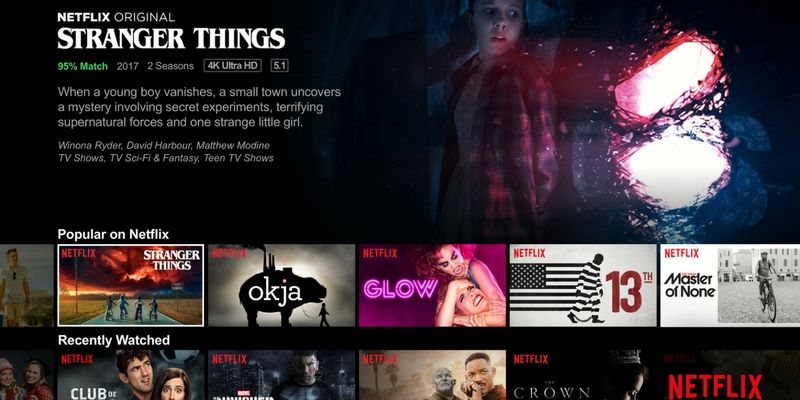Prefer ‘Breaking Bad’ to ‘Stranger Things’? So do 80 % of Netflix subscribers, says report
As Netflix gets ready to announce its earnings for the first quarter of 2018 later today, a new report by US-based market research and business consultancy 7Park Data revealed that the overwhelming majority of US subscribers to the streaming platform were picking licensed content over original content. According to the 7Park report, 80 percent of US subscribers to Netflix viewed licensed content over Netflix’s original shows, and 42 percent of Netflix subscribers watched mostly licensed content (95 percent or more of their total streaming). These figures are for the 12-month period ending September 2017.

According to 7Park, just 18 percent of Netflix’s U.S. streaming customers are “originals dominant”, whose viewing comprises 40-100 percent of originals. As reported by Variety, the top licensed shows streamed during this period were Breaking Bad, Grey’s Anatomy, The Blacklist, How I Met Your Mother, The Office, Parks and Recreation, Criminal Minds, Supernatural, The Flash, and Friends. On the flip side, the most streamed original Netflix content included Stranger Things season 1, the fifth seasons of Orange Is the New Black and House of Cards, Marvel’s Luke Cage, Marvel’s The Defenders, Marvel’s Iron Fist, 13 Reasons Why, Ozark, Santa Clarita Diet, A Series of Unfortunate Events, Master of None season 2, Narcos season 3, Grace & Frankie season 3, Black Mirror season 3, The Unbreakable Kimmy Schmidt season 3, and Bojack Horseman season 4.
Netflix, for its part, has been pushing heavily to promote its original content, following the success of series like Stranger Things, House of Cards and Orange Is the New Black. In February this year, Netflix CFO David Wells revealed that the streaming service was planning to increase its portfolio of original series to about 700 by the end of 2018, with almost $8 billion earmarked for the same, roughly 50 percent of its content budget. At an investor conference, David said, “Let’s continue to add content – it’s working, it’s driving growth.”
Admittedly, Netflix’s push for original content has paid off in some part – for the 12-month period ending September 2016, only 12 percent of all US Netflix streams were for original content, which ramped up to 20 percent in the following period. However, licensed content is clearly an overwhelming draw for audiences, a factor that Netflix will no doubt have to take into account going forward. The scenario is similar for other platforms as well. 7Park’s analysis of Hulu, another major US streaming platform, revealed that for the same period, an overwhelming 97 percent of streamed content on Hulu was licensed, versus original.
The report, perhaps surprisingly, makes no mention of Amazon Prime Video at all. As Netflix's biggest competitor in the US and elsewhere, Prime Video also has a smaller ratio of original content versus licensed content, although the service has been pushing its original offerings in international markets like India.
There are a few caveats though. 7Park admitted that it only analysed desktop viewing, ignoring mobile viewing and connected-television viewing statistics. It’s also unclear how many of 7Park’s two million panel members are in the US, and what its report’s margin of error is. However, as Christopher Coby, Senior Industry Analyst at 7Park Data, commented to Variety, “Licensed content is the engagement engine that drives SVOD (Subscription Video-on-Demand) viewership, retention, and revenue.” Both Netflix and Hulu declined to comment on the report; it will be interesting to see what further insights are revealed in Netflix’s quarterly earnings report.











